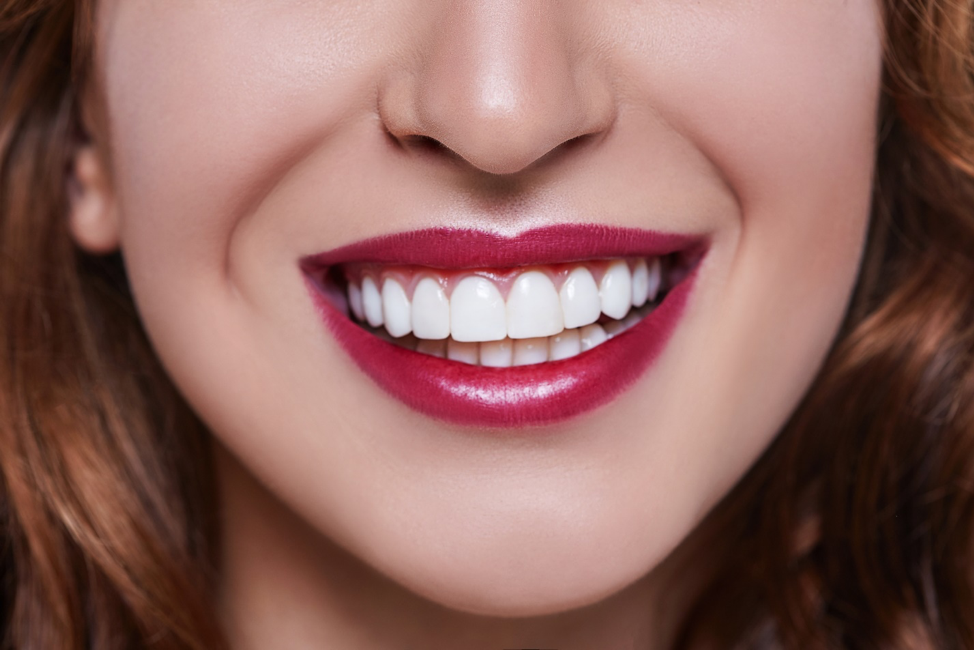
4 Tips for a Whiter Smile
November 1, 2019
Faster Ways to Achieve Straight Teeth
November 15, 2019Gum disease, also known as periodontal disease, occurs in three stages: gingivitis, periodontitis, and advanced periodontitis. In the first stage, people typically experience red, swollen, and bleeding gums. However, some people have no symptoms at all. As the disease advances into periodontitis, symptoms such as bleeding gums, bad breath, receding gums, and loose teeth become more apparent. And in its final stage, sores in the mouth and pus between the gums and teeth may appear. Loose teeth will fall out, and the jawbone that supports teeth will begin to deteriorate.
Fortunately, you can avoid periodontitis and advanced periodontitis by having gingivitis diagnosed and treated. Dr. Abbey J. Lee and our team at Smiles 4 Grant Park are prepared to help you avoid gum disease altogether, but if you experience symptoms of gingivitis, a dental cleaning is the essential first step toward stopping the disease’s progression. Contact our Grant Park office today at 404-328-7177 to schedule your appointment.
What causes gum disease?
In a healthy mouth, there is a healthy balance of bacteria and alkalinity. In an unhealthy mouth, bad bacteria levels are high, and often the pH is toot acidic. The disease-causing bacteria in an unhealthy oral environment lead to more plaque. In 48 hours, plaque calcifies into tartar, which irritates and infects gums, causing gum disease.
The imbalance is generally a result of poor oral hygiene, but may also be caused by:
- Smoking
- Hormonal changes
- Dry mouth
- Genetics
- Some medications and medical treatments
Therefore, good oral health is the best prevention. Good oral hygiene may be all that’s required to stop gingivitis. However, gum disease is a chronic condition, meaning there is no cure. The condition can go into remission, with diligent oral hygiene and maintenance, but anyone who’s had the disease is at risk for recurrence.
Home Remedies for Gum Disease Symptoms
If you’re experiencing symptoms of gingivitis, you should schedule a visit with Dr. Lee immediately. In addition, you can try these natural home remedies to improve your oral health.
Saltwater Rinse
If you’ve ever had an ulcer in your mouth, you may have been advised to rinse your mouth with a saltwater solution, and for good reason. Saltwater is a natural disinfectant and can help the mouth heal by drying out sores and damaged tissue. Here’s how to make a simple saltwater rinse:
- Boil a cup of water
- Pour it into a coffee mug
- Mix about ¾ of a teaspoon until it dissolves
Simply swish the solution around your mouth for at least 30 seconds, then spit it out in the sink. Repeat once or twice. Do this up to three times a day until you notice results.
Lemon Grass Oil
Many people swear by essential oils because they are natural, medicinal, and some have antiseptic properties. You can find natural toothpastes with tea tree oil, for instance. However, tea tree oil can be poisonous if ingested. We suggest you use lemongrass oil, sage, guava leaf, or aloe vera instead.
Simply add the natural element to your toothbrush or mix a few drops into cup of warm water for a mouthwash.
Oil Pulling
Coconut oil and arimedadi oil can reduce plaque and symptoms of gingivitis. Oil pulling involves four simple steps:
- take two teaspoons of oil and swish it around in your mouth for up to 30 minutes
- spit it out
- drink a glass of water
- brush your teeth
You may have to work your way up to thirty minutes of swishing, but those who are consistent with this practice report noticeable results.
Visit Your Grant Park Dentist, Dr. Lee
These remedies paired with good oral hygiene habits at home may reverse your symptoms, but you will still need an exam, diagnosis, and treatment with Dr. Lee. At your appointment, she will talk with you about her findings and your treatment plan. She or the hygienist will also discuss ways you can improve your oral care routine at home.


